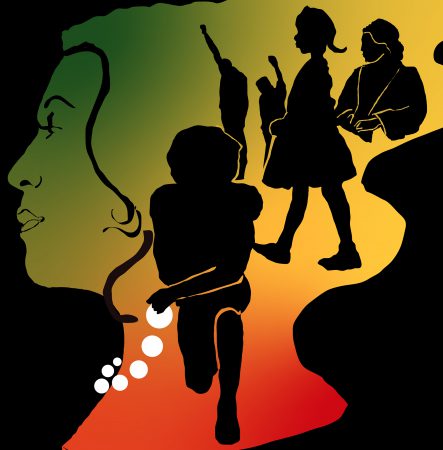 Black history is American history.
Black history is American history.
In 1915, Carter G. Woodson and Jesse E. Moorland founded the organization known today as the Association for the Study of African American Life. The purpose of the organization was to shine a light on the accomplishments of Black Americans and peoples of African descent.
Initially, it was only a week of celebration, but because of the civil rights movement, it shifted into the entirety of February during the 1960s. In 1976, President Gerald Ford finally officially acknowledged Black History Month. He said, “seize the opportunity to honor the too-often neglected accomplishments of Black Americans in every area of endeavor throughout our history,” according to History.
It took awhile for African Americans to get the recognition they deserved. For a long time, Africans were a heavily oppressed group. From slavery to racism, it was a never-ending cycle of maltreatment. Even today, African Americans still suffer prejudice because of the color of their skin.
Black History Month gives them the chance to show how rich their history is — a history filled with extraordinary figures like Martin Luther King Jr., Rosa Parks, Malcolm X and W.E.B. Du Bois, to name a few. African Americans have had to fight continuously for better societal treatment as a whole.
They rallied together in the streets, ending institutionalized racial segregation. Millions united together to protest police brutality against African Americans.
Each step they take for change has a great impact on future generations. They have come together time and time again to fight back against unfairness in society. Recently, the Black Lives Matter movement has garnered traction, furthering the battle for equality. According to The New York Times, BLM may be the largest movement in U.S. history.
It’s a culture that deserves celebration. The 1910s and 1930s are considered the golden age for Black culture, according to History. That was the time of the Harlem Renaissance in which African Americans formed a unique identity through literature, music and art. Jazz’s popularity also came out of this cultural boom. It became so popular that the white community often listened to it as well.
The willingness to share African American culture with their oppressors is demonstrative of how proud of a group they are. Instead of doing the exact thing that was being done to them, they took opportunities to educate others on their culture, rather than excluding them entirely.
America wouldn’t be where it is today without the hardships that African Americans went through. A month isn’t enough time to reflect on all the trials and tribulations Black Americans have had to overcome. But, even when adversity is directly in front, the Black community manages to stand up and have their voices projected worldwide.
Unfortunately, society hasn’t reached the levels of tolerance expected by this point in history.
Recent events have uncovered the ugly ignorance that many still have. But, as they’ve done before, African Americans will stay united, informing outsiders about the fight for their culture and heritage.
Black history is American history.

